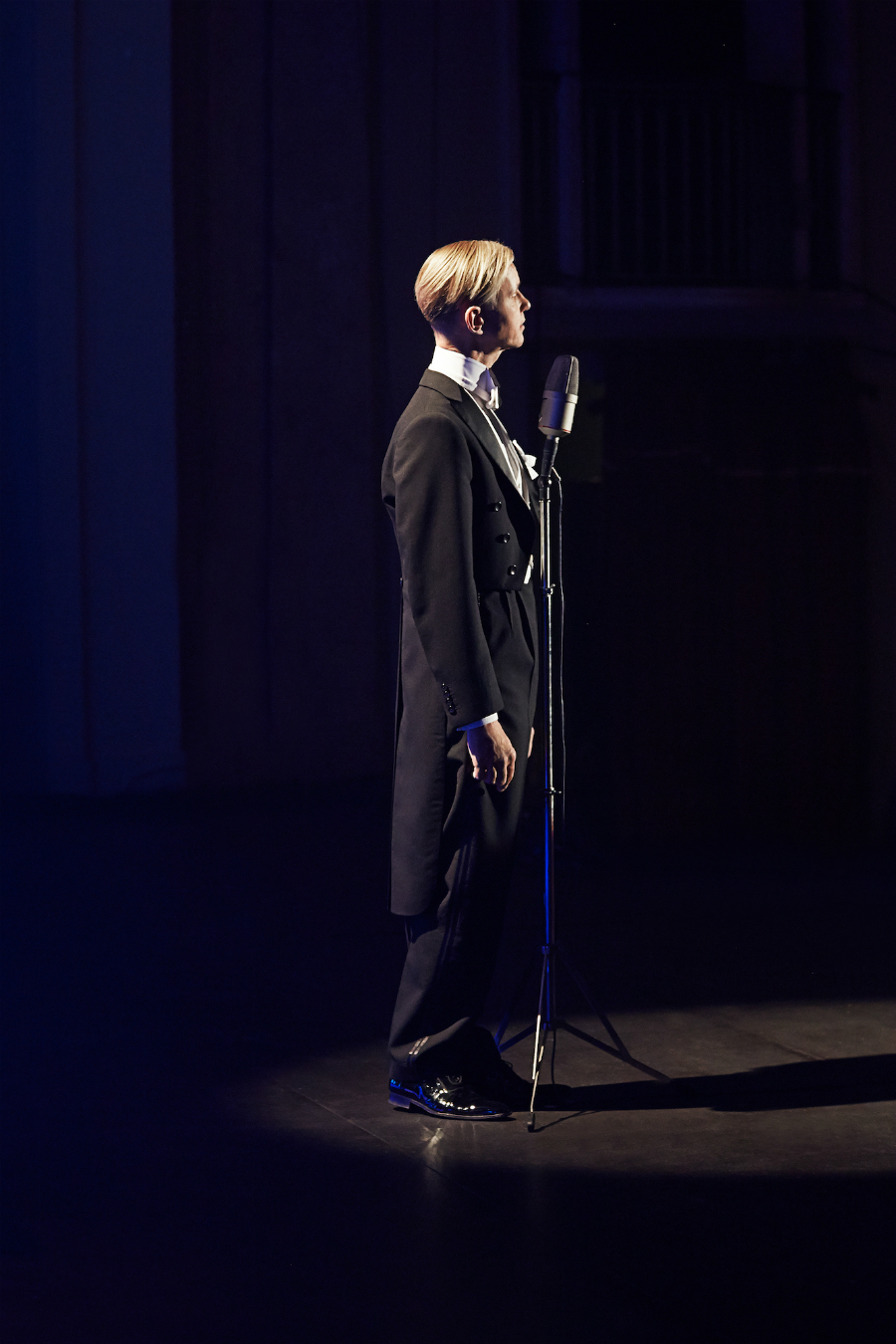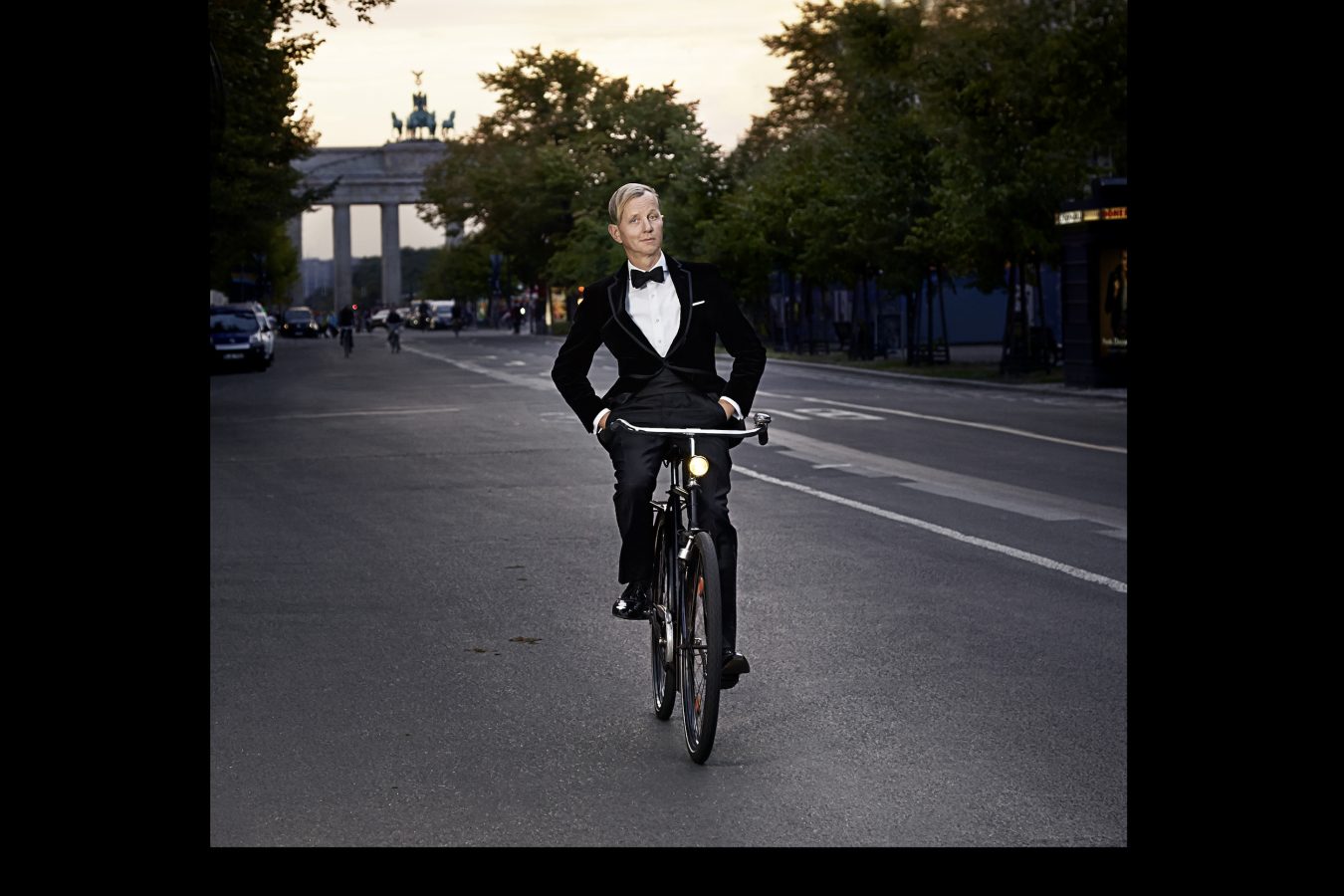It was by accident that Max Raabe came across the music that would catapult his career.
He was in a local Berlin library, doing research for a university class, when he happened upon some neglected musical arrangements for songs from the golden era of 1920s Berlin music halls. Raabe, who was studying to become a baritone opera singer, immediately recognized their value. And so, he began a more focused search, as he puts it, “in dark old cellars, in flea markets, many different places”. Enchanted by his findings, Raabe formed the Palast Orchester with some like-minded fellow students so that they could perform these songs for small groups of spectators around the city.
“We found an audience, slowly at first, but after a while it became quite popular,” Raabe recounts over the phone from Berlin. There has been, on an international scale, an ongoing interest, fascination, even, with this kind of music. That era perhaps hit its zenith with the Bertolt Brecht and Kurt Weill musical The Threepenny Opera, itself based on John Gay’s The Beggar’s Opera. The Brecht/Weill collaboration included such pieces as “Wedding Song,” “Pirate Jenny,” and the one that keeps on going and going: “Ballad of Mack the Knife.” This kind of music may well have first come to a wide North American audience via the Bob Fosse film Cabaret, which captured the Berlin nightclub atmosphere during the Weimar era, when Brecht, Weill, and others were emerging as serious artists.
An album curated and produced by the legendary Hal Willner, titled Lost in the Stars, moves outside Threepenny, using various contemporary artists such as Lou Reed, Tom Waits, and Dagmar Krause, who interpret Kurt Weill’s songs, many of them co-written with Brecht. Raabe enjoys this album, but it is not actually what he and his orchestra do. “We bring a quirky, special humour, combined with an elegance, to the music. But the whole point is we are able to perform these songs just as they were performed back in the ‘20s in Berlin,” the singer explains. “We are not, as in the case of Mr. Willner, interpreting the material anew. Crisp trumpet charts, vibrato on the saxophones—it is thrilling to be able to bring this to audiences today. And occasionally, we include a song from the same period, but a different culture, a jazz song or two. But when we perform a song like ‘Stormy Weather,’ it is like going into a time machine.”
It is difficult to pinpoint with any logical precision why certain eras, and artifacts from those eras, take on a significance that transcends the period itself. Raabe has thought about this plenty. “It is a difficult question,” he admits. “But we can perform ‘Midnight, the Stars and You’ a hundred times, for a hundred culturally different audiences, and get a consistently positive response.”
The Palast Orchester has recorded many albums, but seldom do they wander far from the core mine of songs that made them famous in the first place. There appears to be a still-undiscovered trove of songs, as well. Raabe was invited, some two years ago, to visit a library in Chicago which was rumoured to have some works he might be interested in. There were literally hundreds of them, all in their original-copy glory, giving Raabe and his fellow musicians another rich source of material.
Live performances, where “we have the privilege of having another view of these songs” courtesy of the audience, is what makes the constant travel well worth it for Raabe (and Vancouverites will get a taste of it when he and his team come to the Chan Centre for the Performing Arts on April 9, 2017). After all, these songs were written and arranged in order to be performed. That is true today just as it was nearly a century ago, when they first came to life.
Stay in tune. Read more music stories.










